Siege of Port Arthur as a black page in Japanese military history
All story That distant, now already forgotten war still raises many questions, doubts and disputes among researchers, and just lovers of military history.
From various sources it is known that Port Arthur did not have time to properly prepare for defense, the main reason for the current situation is associated with the lack of necessary state funding, at that time, the Russian army was plagued by the same funding problems as it is now.
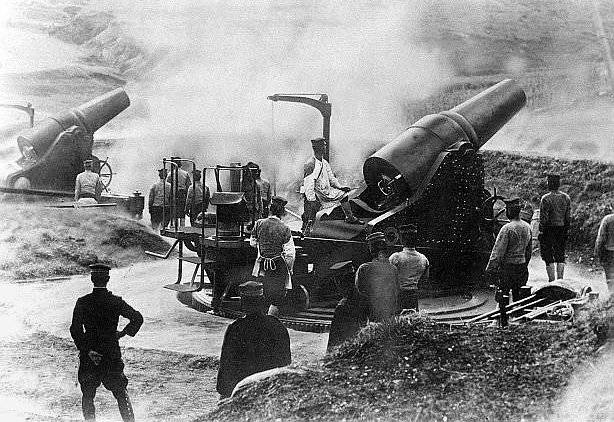
According to the plans of the military department, it was planned to fully complete all construction work and other measures to bring the fortress to full alert only for the 1909 year, but the Tsarist Ministry of Finance began to allocate money for construction work only with the start of the war, only managed to allocate about 4,5 million from 15 Millions of planned, which was approximately less than one third of the required.
As a result, by the beginning of hostilities in the fortress only a little more than half of all the work was done, with the greatest attention being paid to the coastal front, that is, they were going to defend themselves from the enemy mainly from the sea, not from the land area.
Another miscalculation in the construction of Port Arthur is the fact that its defensive line adjoined too closely to the city and harbor, which made it possible for the Japanese to subsequently bombard most of the fortress from almost the very first days of the siege, including the sea harbor itself with warships fleet.
It turned out that in the military engineering respect, Port Arthur simply did not fit in its engineering parameters with the standards of the then modern fortress like Verdun or Brest-Litovsk, the so-called classical fortresses. Port Arthur was not a fortress, but most likely was a complex of various defensive positions and structures. The Russian military command, well aware of all the weak points of the defense of Port Arthur, built the entire system of the main fortifications, relying on the rather favorable relief of the terrain.
Most of the fortifications were mainly built on commanding heights, opposite which to the north of the fortress there was a relatively flat space, which, as it approached the fortifications, turned into open, sloping terrain, the whole of this area was turned by the defenders into a zone of solid artillery and rifle fire . The rear slopes of the heights served as a good cover for people and guns.
With the outbreak of hostilities, the erection of fortifications accelerated, work was carried out day and night. Echelons with troops, artillery, machine guns and ammunition continued to arrive at the fortress until the very last moment. But to fully complete all the engineering and construction work for five months, which were calculated for five years, was not possible.
It is also known from various sources that as early as July 1904 had only 646 artillery guns and 62 machine guns in service with the port-arthur fortress, out of this total number of 514 guns and 47 machine guns, it was installed on the land front.
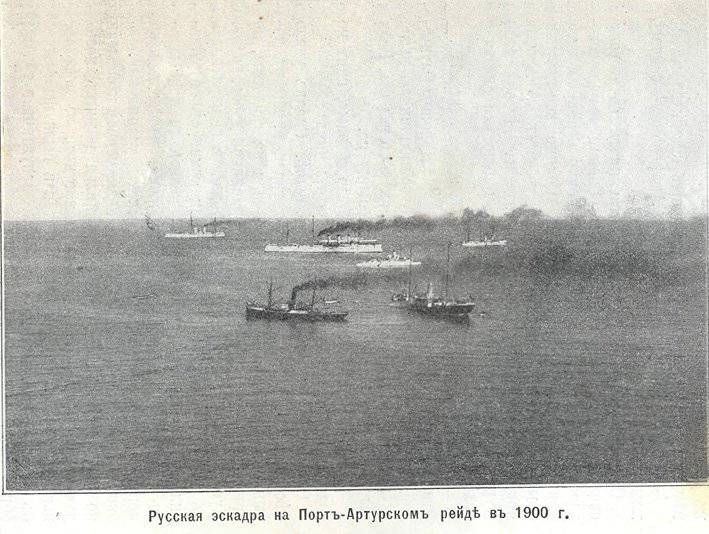
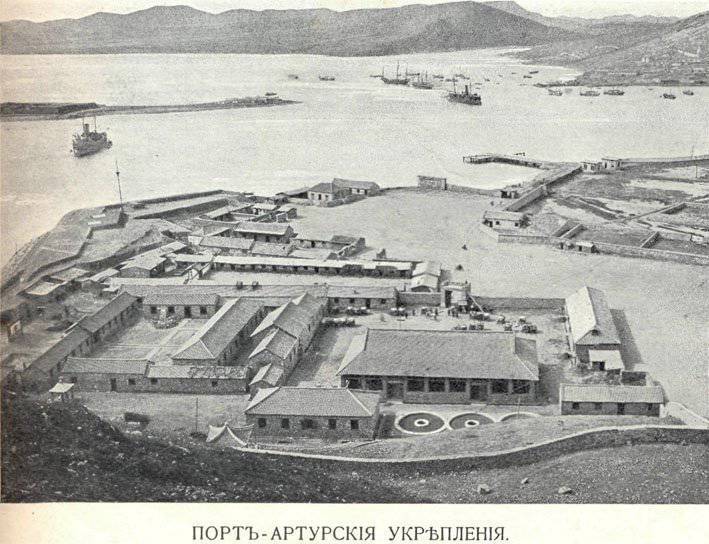
Shells were available at a rate of about 400 for each weapon. For the carriage of goods, materiel, combat supplies, food, etc. In the fortress there were over 4,5 thousand horses.
By the beginning of the defensive battles, the garrison of Port Arthur was provided with food, including flour and sugar for half a year, meat and canned food for one month only. Then I had to be content with horse meat, there was little green supply, which is why during the siege there were many cases of scurvy in the garrison.
The total strength of the garrison of the fortress consisted of 41 780 soldiers and 665 officers. In addition, there were 6 battleships, 6 cruisers, 2 mine cruisers, 4 gunboats, 19 destroyers and Amur mine vehicles in Port Arthur Bay.
The personnel on the squadron and the Kwantung naval crew numbered up to 8 thousand people, it was a truly well-trained, cadre army consisting of conscripts, whose average age was no older than 30, therefore the fighters from the garrison of Port Arthur, in contrast to the soldiers of the Kuropatkin army, which consisted in the majority of the vaults, they fought professionally, with minimal personal losses, while causing maximum damage to the enemy.
The defense of Port Arthur was headed by General A. M. Stoessel, to which all ground and engineering troops, as well as the serf artillery, were subordinate. However, what was interesting to note was that the fleet, which was based in the bay of the fortress, was subordinate not to Stoessel, but to the commander-in-chief, who was in Manchuria and could not really control them.
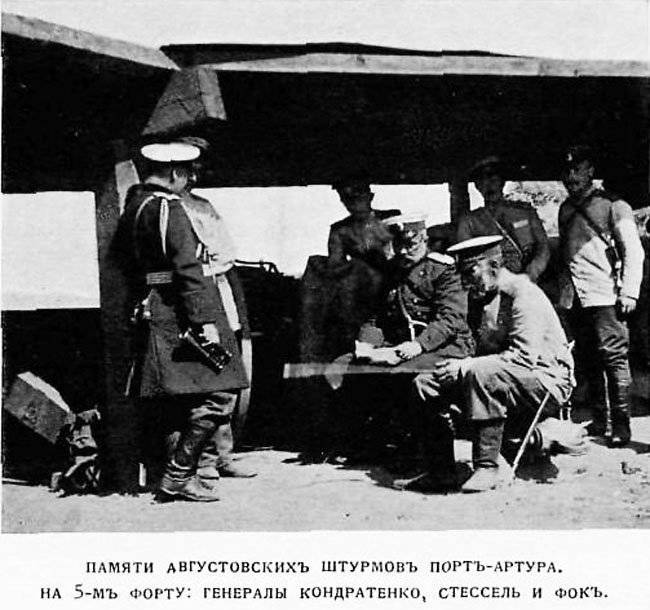
Even in the absence of a sufficient number of long-term, well-fortified structures, Port Arthur met the enemy with organized defense and, as subsequent events showed, became a real grave for the Japanese land army.
The Japanese sought to seize Port Arthur, primarily in order to destroy it as the main base of the Russian military fleet, that is, the ground army acted in the interests of the fleet, the events of the war showed that the Japanese fleet fought much better than the ground forces. For the siege and capture of Port Arthur, the Japanese formed a special 3 Army, which consisted of three infantry divisions, two reserve brigades, one field artillery brigade, two naval artillery detachments and a reserve sapper battalion.
At the initial stage of the siege, not counting the special forces, Commander General Nogi had under his command over 50 thousands of bayonets, more than 400 guns, of which 198 barrels of special siege artillery.
Subsequently, the siege group of Japanese troops was constantly growing and soon reached about 100 thousand soldiers, and this is not counting the reserves, with which the Japanese kept Port Arthur to 200 thousand soldiers and officers.
The fighting for Port Arthur began in the first half of May 1904. on the distant approaches to it, from the so-called battle of Panshan. This place was called the Jinzhou Isthmus, which is about 4 km wide (the narrowest point of the Kwantung Peninsula) and defended by the reinforced 5 th East Siberian rifle regiment of the 4 East Siberian rifle division, which only numbered about 3 thousands of 800 people in 65 facilities and XIUMX forces of XIUMX, and only about 10 thousands of 13 people in 2 units and XIUMX forces, which only numbered about 35 thousands of 216 people in 48 units and XIUMX forces, defended them all in total around 8 thousands of XNUMX people in XNUMX units, and XIUMX forces, XIUMX XNUMX thousands of XNUMX people in XNUMX units, XIUMX, XIUMX, XIUMX, XIUMX XIUMX XIUMX XIUMX XIUMX XIUMX XIUMX XIUMX Infantry Division, . During XNUMX hours, the regiment opposed parts of the Japanese XNUMX Army, about XNUMX thousands of people with XNUMX guns and XNUMX machine guns. The Japanese initially acted on the pattern, tried to storm the heights in the forehead, literally walked over the corpses of their dead soldiers, the XNUMX successive attacks were repulsed by the Russians without much difficulty.
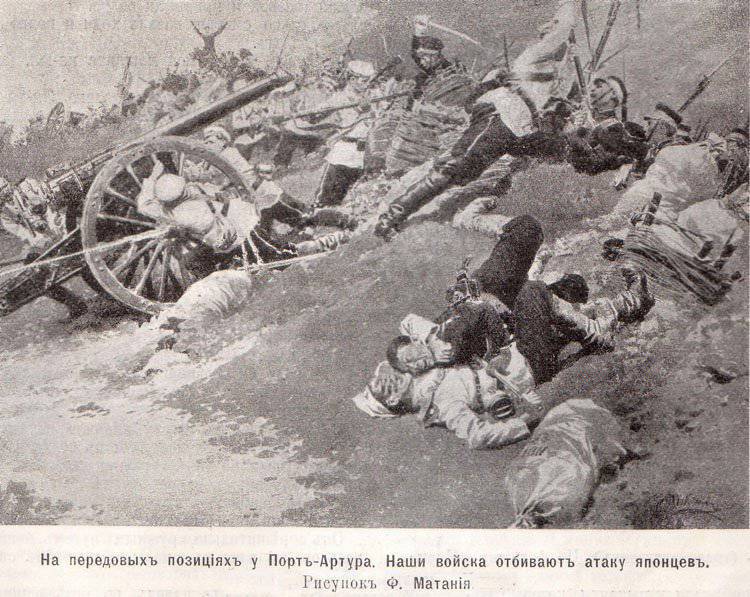
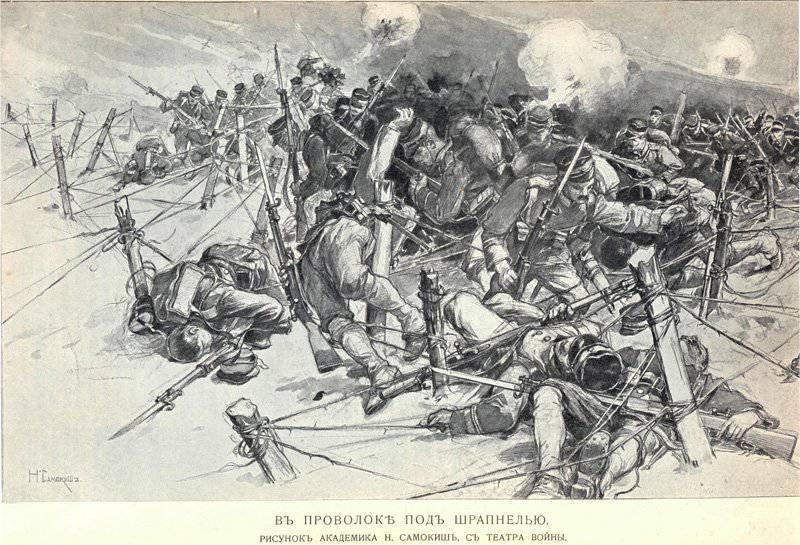
In the end, not having received reinforcements, the regiment was forced to retreat from its tactically advantageous and well-fortified position. As a result of the first battle, the forces of Lieutenant General Yasukaty Oka lost 4,5 thousand of 30 thousand people who participated in the battle. The loss of Russian troops amounted to about 1 thousands of people. This was just the beginning, the main victims of the siege were waiting for the Japanese to come.
Next, the storming of the Port-Arthur’s fortifications was carried out by the Japanese in strict order, as if on a schedule, for example
The assault, carried out between 19 and 24 in August, ended in a complete defeat for the Japanese, one of the reasons for which was the excellent accuracy of night artillery of the Russian artillery. The result of the assault - in two weeks of continuous fighting, the Japanese only laid down more than 15 thousands of their soldiers, some units, and even whole units of General Legs, simply ceased to exist or were more than finished, Russian troops also suffered serious losses of about 3 thousand people.
In the period from 15 to 30 in September, General Legs delivered his next massive massive frontal attack, this time successfully. The Japanese even managed to capture some minor positions, but the key point of the entire defense system - the height of 203 - repelled all attacks. The strike columns were swept down again and again until the slopes of the hill were covered with the corpses of Japanese soldiers. In this battle, the Japanese lost 7 thousands of 500 chelochek, Russian - about 1 thousands of 500 people.
Particularly well and effectively in repelling all these Japanese assaults were the units of Russian machine-gunners, queue after queue they mowed countless Japanese chains, sending them dozens, and even hundreds to heaven to their Japanese gods, the trunks red-hot to red and did not have time to cool down from the intense exploitation, machine guns were breaking down, podnoschiki barely had time to bring cartridges with ribbons, there was a roar of battle around, the enemy’s corpses lay in bulk, the Japanese soldiers, like zombies, continued to go forward, and in front of them only died be
In November, the so-called “fifth general” offensive of the Japanese took place, and again it was repulsed by the Russians in all positions and cost the Japanese more than 12 thousands of lives.
And only finally, on November 22 (December 5), did the enemy completely occupy the height of 203 (Mount High). The total losses of the Japanese during the assault on the mountain amounted to about 10 thousand people. Russian troops lost 5tys. soldiers and officers, these were the largest single losses of the Russian troops in the entire defense of Port Arthur.
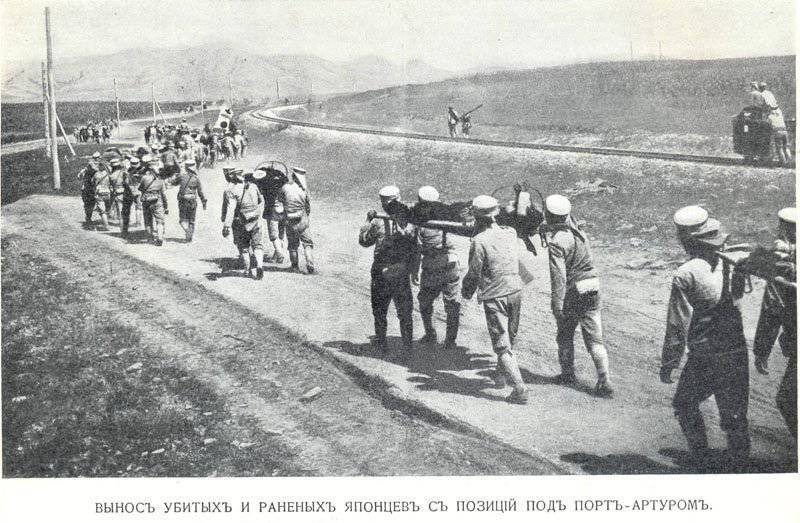
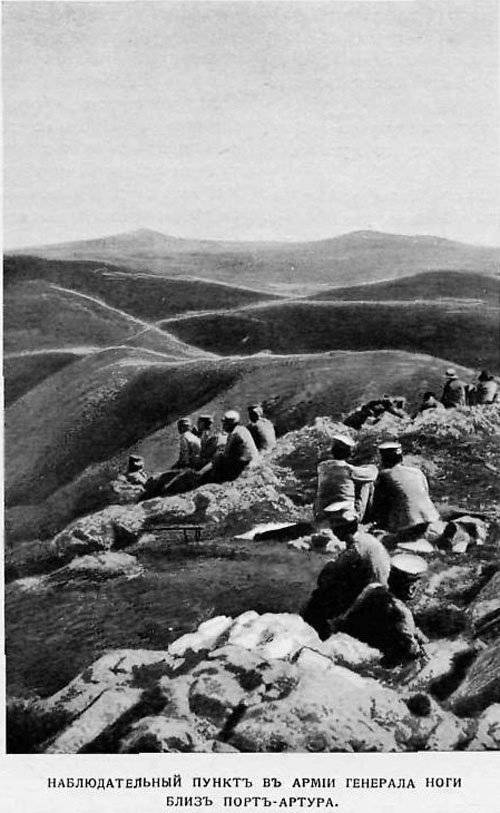
From the captured mountain, the Japanese began to adjust the fire of heavy siege weapons at Russian ships. Soon most of the ships of the 1 Pacific squadron were sunk in the roads of Port Arthur. The fate of the fortress was sealed. The failure of the constant assaults, as well as the entire siege of the fortress as a whole, dramatically complicated the situation in the siege army of the Japanese. In many formations, the “limit of so-called stability” was surpassed, with the result that the morale of the Japanese forces dropped sharply.
There have been cases of disobedience and even an attempt to revolt, and this is among the always disciplined Japanese, who have their own philosophy of life and death, especially from all nations, who, as experts say, have never been afraid to die for their emperor, everything is not so clear - they were afraid and how feared. Interestingly, the behavior of the Japanese high command itself, which threw tens of thousands of its soldiers directly, as if to slaughter them, can be directly said by the Japanese literally with the corpses of their soldiers deposed defenders of the fortress.
According to various reports, it is known that during the siege of Port Arthur, the Japanese army lost thousands of its soldiers killed, wounded, and died from wounds and diseases from 90 to 110. These were truly terrifying losses. Russian losses amounted to all 15 thousand dead, of which the direct military losses were 7800 soldiers and officers.
December 23 1904 (January 5 1905) was made a surrender, according to which the garrison consisting of 23 thousand people (counting with the sick) surrendered to prisoners of war with all stocks of military equipment.
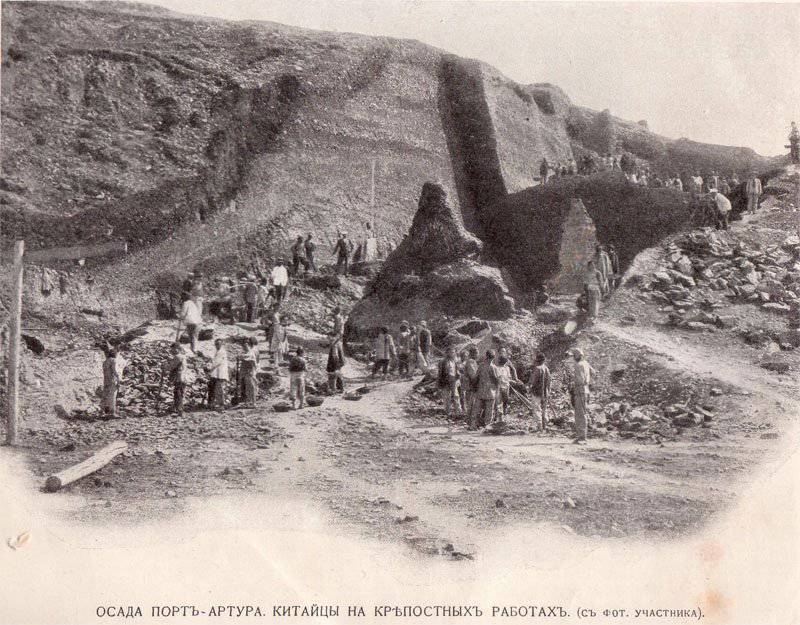
In those days, knightly traditions still operated and the Japanese allowed the Russian officers to return to their homeland. To those who agreed to give the word of honor that they would not participate in hostilities.
The question still remains controversial: could Port Arthur continue to continue resistance, or were the resistance forces of the garrison really completely exhausted? Who is the head of the garrison, General Stoessel - the criminal who surrendered the fortress to the enemy or hostage to the circumstances. Some researchers argue that further resistance of the defenders of the fortress was unpromising, completely blocked from the sea and land, Port Arthur was doomed, and Stoessel’s actions as commander were justified, they saved the surviving defenders of the fortress. There is another opinion that Stoessel has betrayed, since he surrendered all the artillery to the Japanese, which is no less than 500 units. artillery pieces of various calibers and systems, large stocks of provisions and other material values, which at the time of the surrender remained in the fortress.
Still, Stoessel still appeared before a military tribunal, which sentenced him to death for surrendering a fortress and a port. The court found that during the entire period of defense, Stoessel did not direct the actions of the garrison to defend the fortress, but, on the contrary, consciously prepared it for surrender. However, the sentence was later replaced with a 10-year imprisonment, but in May 1909, he was forgiven by the king. The society of Russia at that time was not at all interested in the details of the war that had been lost, then the students and female students were more interested in bombers and revolutionaries of various stripes, and the heroic defense of Port Arthur, already on the other side of the world, the war with some Japanese was all taken society rather as exotic and nothing more.
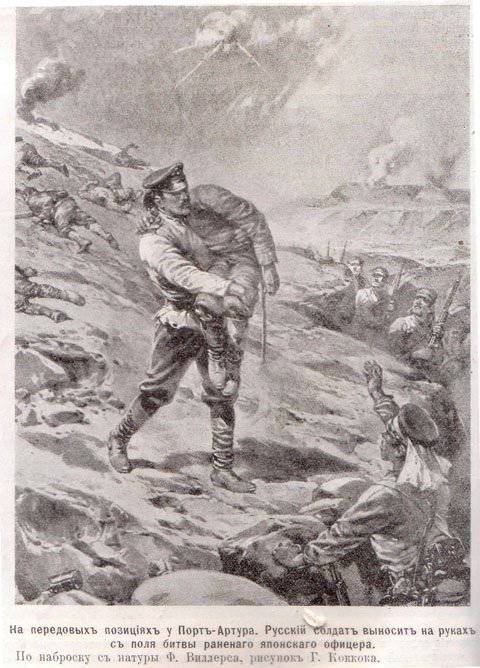
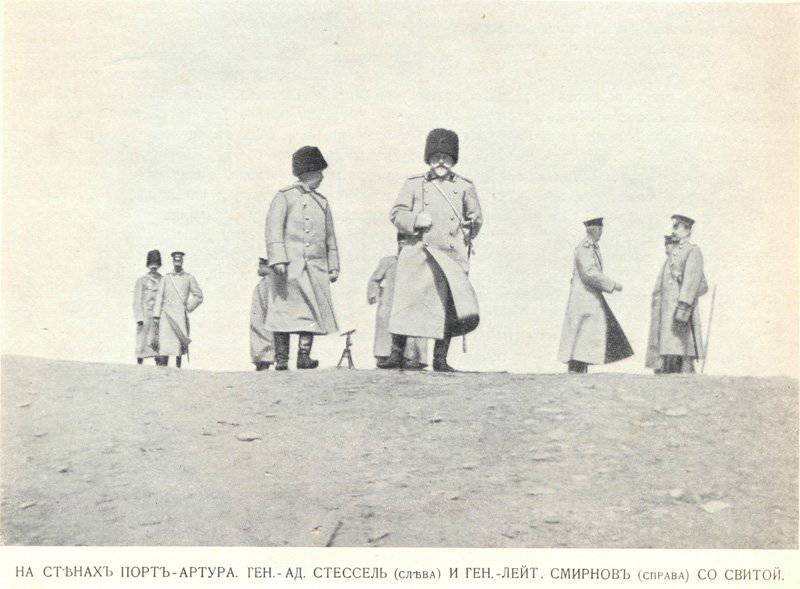
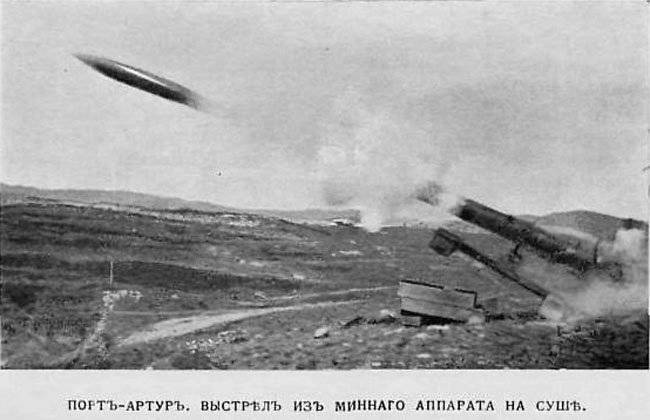
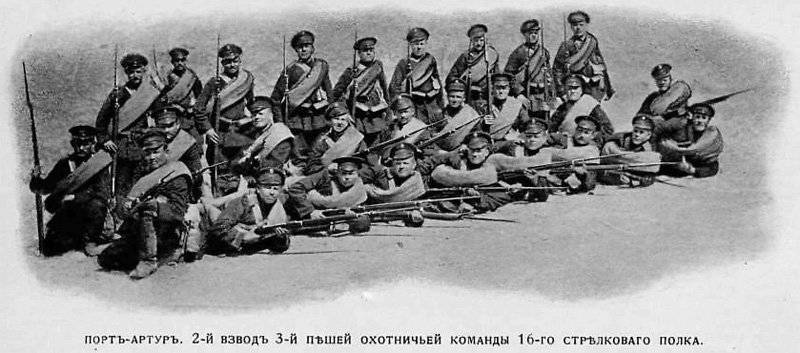
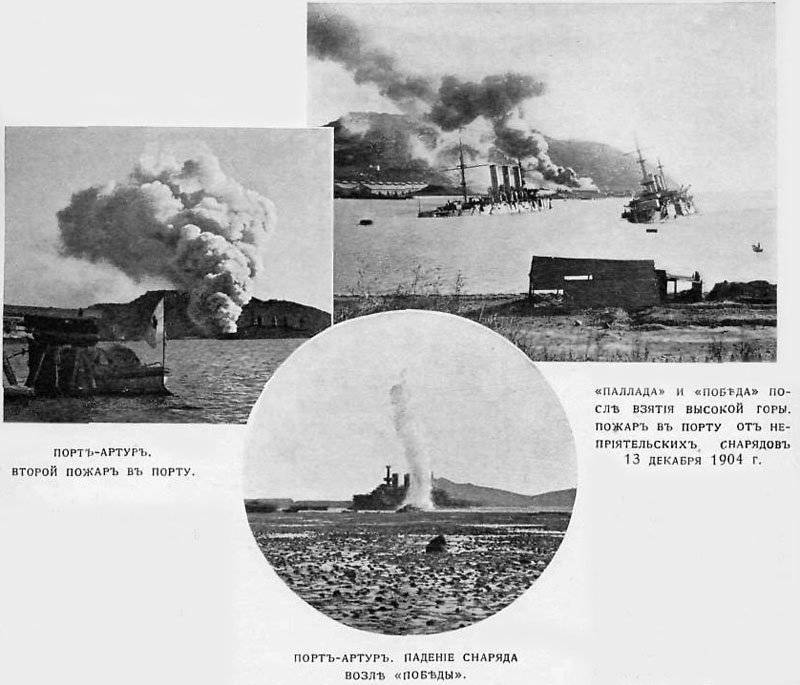
Information